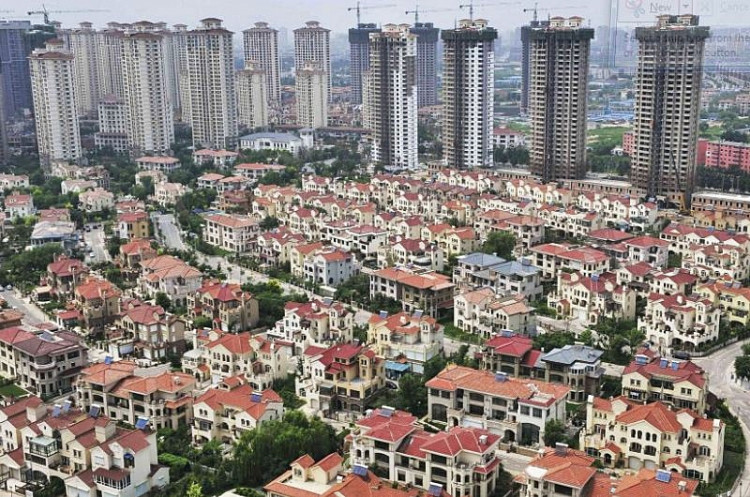Home prices throughout China zoomed upward by 1.4 percent in August from July's 1.1 percent, the fastest pace in nearly two years and another sign the persistent real estate bubble is again expanding.
This unwanted expansion is also the 40th straight month of price increases, and is the fastest uptick since September 2016, according to an official survey published over the weekend by the National Bureau of Statistics (NBS). The 1.4 percent hike was derived from the average new home prices in China's 70 major cities.
The NBS study shows that 67 out of the 70 cities surveyed reported a monthly price increase for new homes compared to 65 in July. Only one city (Xiamen) reported an actual price decline. Year-on-year, new home prices climbed seven percent, a much higher clip from July's 5.8 percent rise, according to NBS data.
Smaller cities registered the highest price growth. August price hikes in the 35 small cities the NBS official survey tracks rose two percent from July and was far larger than in larger cities, said the NBS. Home prices in August were the highest in Wuxi, a third-tier city near Shanghai, whose prices jumped 3.4 percent month-on-month, said NBS data.
On the other hand, China's four biggest cities (Beijing, Shanghai, Shenzhen, and Guangzhou) recorded an average monthly price increase of just 0.3 percent compared to an increase of 0.2 percent in July.
Real estate analysts said the rise in home prices took place despite tougher regulatory curbs designed to temper a three-year-long real estate boom. Many experts agree this boom is actually a dangerous real estate bubble marked by sky-high home prices and speculative buying.
They said the expansion is also an unmistakable sign Beijing's campaign to re-start the country's sluggish economy by pumping more money into it is heating up the already volatile real estate market plagued by some of the highest prices in the world.
The increases in property prices so far this year are due to looser credit, believes Nie Wen, an analyst at Hwabao Trust Co., Ltd., a trust company focusing on securities, investment, and financing. It's also due to the delayed effect of strong government stimulus introduced in previous months to reduce inventories. These stimulus packages are slowly kicking-in, said Nie.
The upside to increased government spending is that sustained real estate growth might cushion the impact of a persistent government crackdown on debt and the shadow banking industry. Added to this problem is the worsening trade war with the United States. Together, these twin factors might expand the already worrisome real estate bubble that has thus far defied solution.






